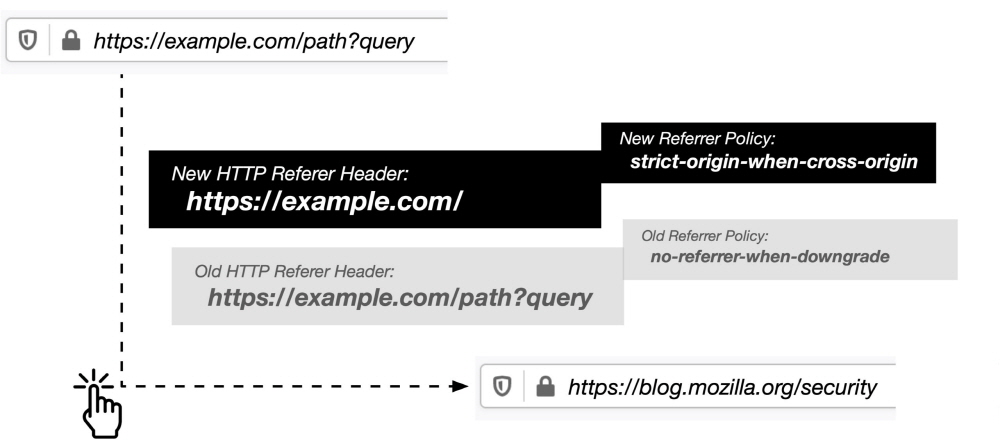
Firefox, developed by Mozilla, has a lot of features to protect the personal information of commercial users, such as the ability to block redirect trackers and prevent tracking (State Partitioning). In Firefox 87, released on March 23, 2021, the policy to reduce information contained in referrers is activated by default.
Piraler is information indicating that a user visiting a website has visited from a link to a website. Firefox has adopted a referrer policy (no-referrer-when-downgrade) so far, and does not send a referrer only when moving from an HTTPS page to an HTTP page, and in other cases, it sends a referrer.
According to Mozilla, this policy had certain privacy effects in the days when HTTPS was adopted only for pages requiring encryption. However, now that many sites support HTTPS, it is necessary to adopt a different policy.

Therefore, Firefox 87 adopted a new referrer policy (strict-origin-when-cross-origin). In this policy, when browsing the same website, referrers are sent as they currently are, but only part of the referrers are sent when moving between different sites.
Looking at the referrer policy change prepared by Mozilla, for example, if you move from the site’https://example.com/path?query’ to another site, the policy adopted for Firefox 86 will be sent to the referrer. However, with the newly adopted policy, only the domain part (https://example.com/) is sent to the referrer.
Under this policy, referrers are not sent as now to go from an HTTPS page to an HTTP page. Mozilla explains that by adopting the new policy, you can experience browsing with high personal potential. Changes to the referrer policy are made automatically by updating to Firefox 87, so there is no need for user configuration. Related information can be found here.

